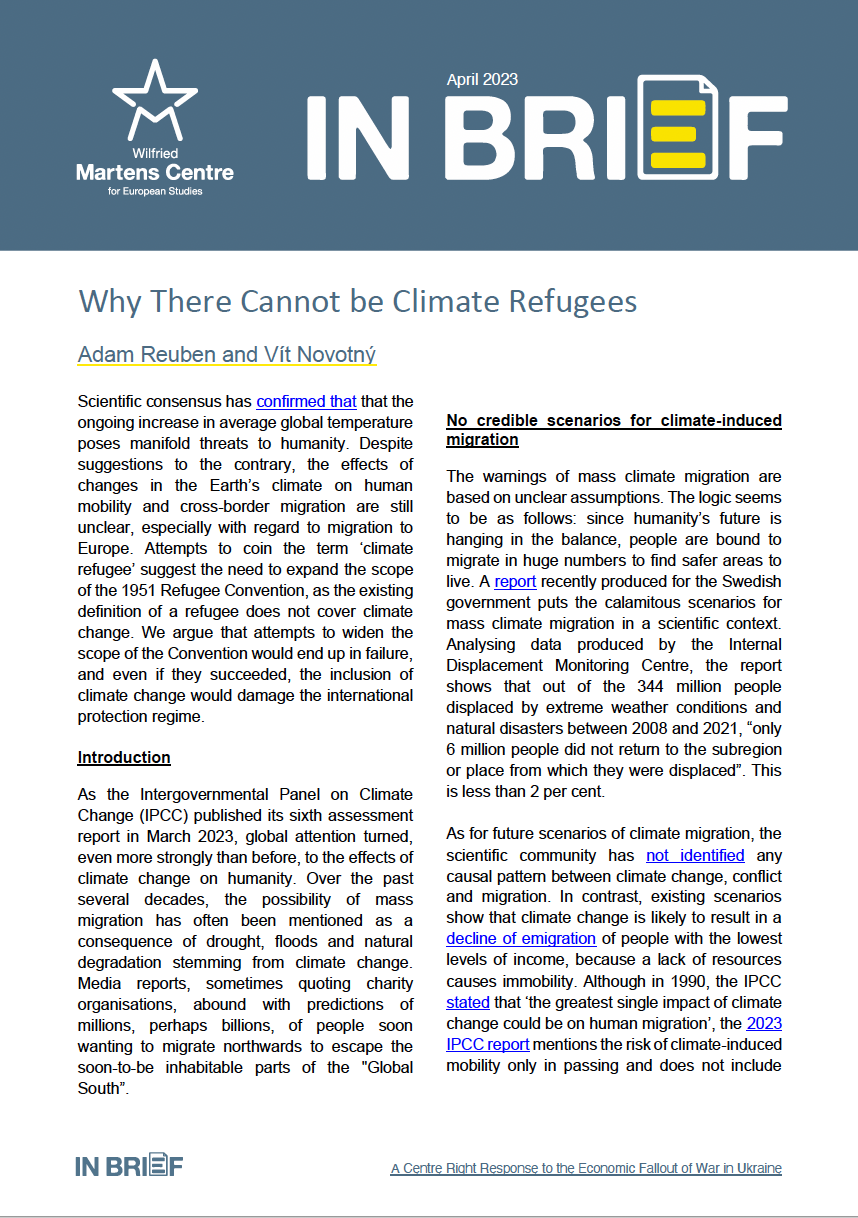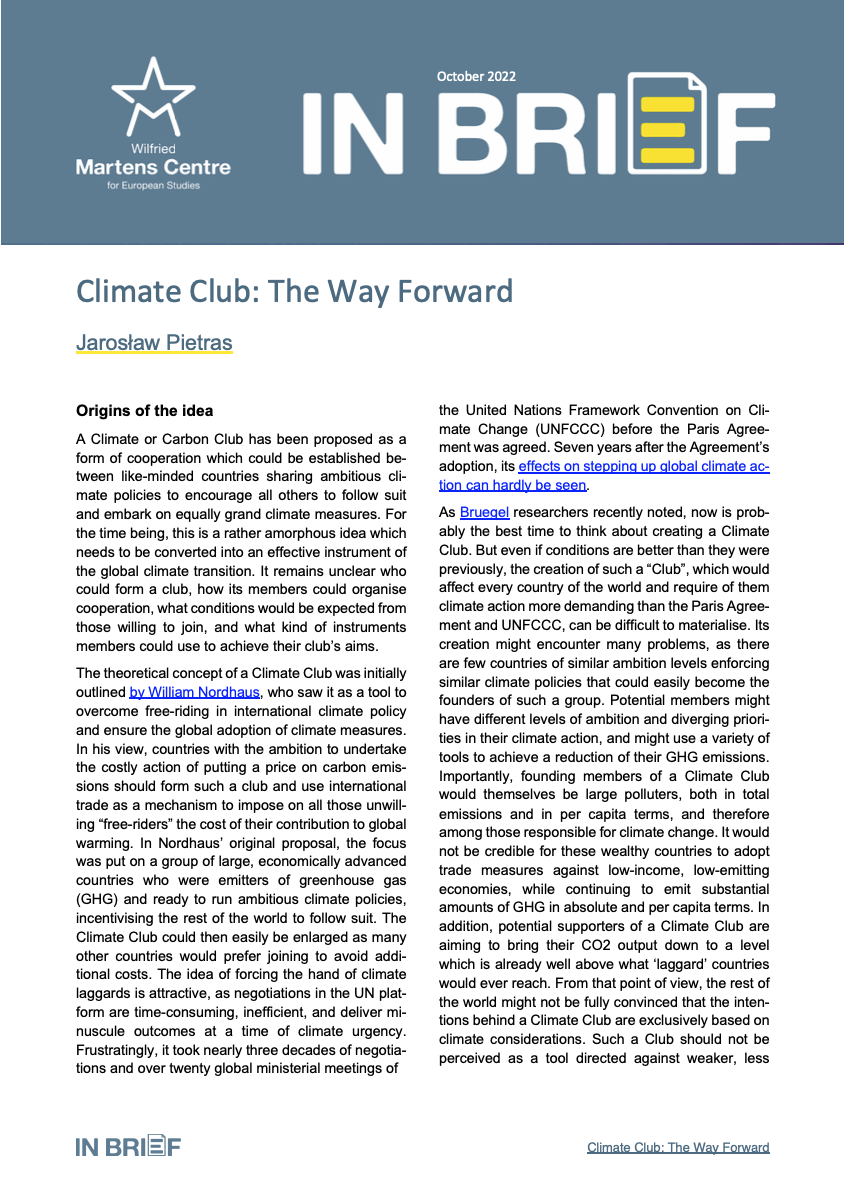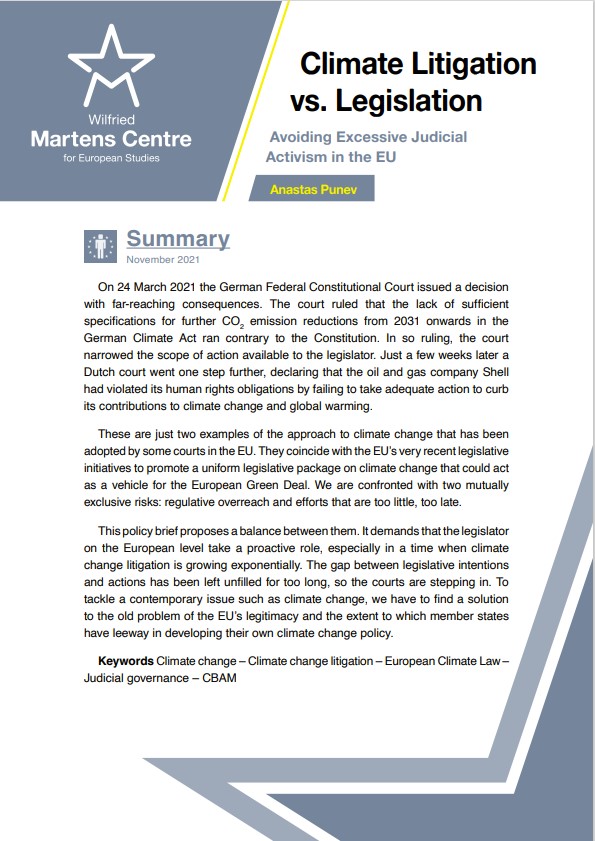Related publications
-

IN BRIEF
Why There Cannot be Climate Refugees
-

Research Papers
Navigating the Carbon Border Adjustment Mechanism: The Dangers of Non-Compliance and Circumvention
-

Collaborative
Decarbonising the Economy of North Macedonia
-

IN BRIEF
Climate Club: The Way Forward
-

Research Papers
Back to Geneva: Reinterpreting Asylum in the EU
-

Collaborative
The European Green Deal and the Middle Class
-

Policy Briefs
Qualified Majority Voting in EU Foreign Policy: Make It So
-

Policy Briefs
Building a Gender Equality Legacy From the von der Leyen Commission















